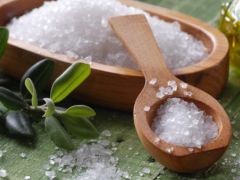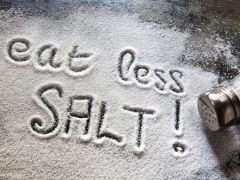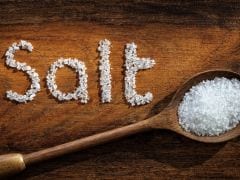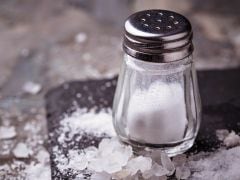

Salt is a mineral composed primarily of sodium chloride, which if not taken in the right amounts will do more harm than good to your body.

'Prevention is better than cure'. A recent study published in The British Journal BMJ says that you can avert and reduce the risk of heart attack by limiting the intake of salt in your food.

The average salt intake in India is double that of the WHO-recommended maximum consumption level of 5 gm/day, a study said on Wednesday.

A recent study, published in the journal Cardiovascular Research, found, "a high-salt diet increased the levels of a stress hormone by 75 percent."

The study of more than 2,15,000 people found that each additional gram of sodium excreted in urine over 24 hours was associated with 11 per cent higher odds of an eczema diagnosis.

A recent study carried out by WHO has revealed that Indians love salt a little too much, five time more than the recommended daily intake.

According to a research study, cutting down on salt can help you get good sleep by reducing the number of trips to the toilet.

According to a study published in the journal Clinical Investigation, salty foods tend to diminish thirst and increase hunger instead, due to a higher need for energy.

WHO released a new set of global benchmarks for sodium levels in more than 60 food categories.

Sodium chloride in salt may raise blood pressure, which can also lead to heart ailments. It has been claimed for the first time that excessive salt intake may also significantly weaken immune system.